Healing with Humor: Hannah’s Journey After Spinal Cord Injury
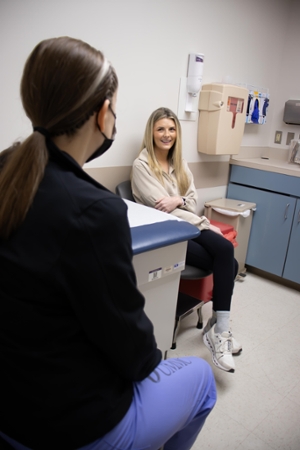
"It's weird to love a hospital so much, but when they've done so much for you, you can't help but love them," says Hannah Evans Johnston, 27, from Carthage, Mississippi. Meeting Hannah today, with her bright smile and positive energy, it’s easy to overlook the fact that she is partially paralyzed. It’s even harder to imagine the severe spinal cord injury that changed her life just over a year ago.
In January 2024, Hannah, then a newlywed schoolteacher, had a huge heart for helping others. With freezing temperatures and ice storms on the horizon, she helped organize an effort to collect and distribute warm clothing for students in need. While making deliveries with her husband, William, and their adopted teenage son, they hit a patch of ice, causing their truck to slide off the road into a wooded ditch.
Though shaken, they were unharmed. They walked to a friend’s house to get out of the cold, and shortly after, William’s father arrived to take them home. On the way, they stopped by the wreck so William could retrieve a forgotten item. In that instant, an 18-wheeler lost control on the same ice patch and slammed into their rescue car.
"I thought they were all dead," William recalls. In the chaos, he heard his son calling for help and pulled him to safety with only minor injuries. Hannah and his father weren’t as lucky.
"Dad had a TBI, but he's recovered for the most part," William says thankfully. The weather was so severe that emergency teams struggled to reach the wreckage. When they finally did, it was clear Hannah’s injuries were devastating. She could speak and move her head, but the rest of her body was still. She needed the highest level of care, and fast.
At the University of Mississippi Medical Center (UMMC), Hannah received a devastating diagnosis: a C3 central spinal cord injury—one that typically offers little to no chance of regaining movement.
But Hannah is anything but typical.
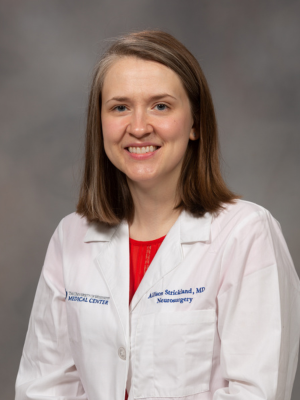
"She is without a doubt the most positive spinal cord injury patient I have ever been around," says Dr. Allison Strickland, Hannah’s neurosurgeon. Shortly after her arrival, Dr. Strickland performed surgery to stabilize her spinal cord, giving her the best possible chance of recovery.
During her stay at UMMC, Hannah enrolled in a clinical trial led by the Department of Neurosurgery. This study focused on improving outcomes for patients with spinal cord injuries and aimed to evaluate a new therapy designed to support neural recovery and enhance motor function.
“Patients like Hannah, who are willing to participate in clinical trials, help us do what we do. It’s part of our mission to improve outcomes for future patients. Through research and clinical trials, we strive to develop new therapies by learning from each patient’s experience,” said Dr. Chad Washington, chair of the Department of Neurosurgery and Principal Investigator of the study.
Defying all medical expectations, the first signs of movement returned—starting with the tiniest flicker of Hannah’s thumb. She believes the research drug contributed to her progress.
"The doctors told my family that if I could use a TV remote, that would be huge," Hannah says. "Of course, that was like, ‘challenge accepted.’ I was determined to do more than control a TV remote."
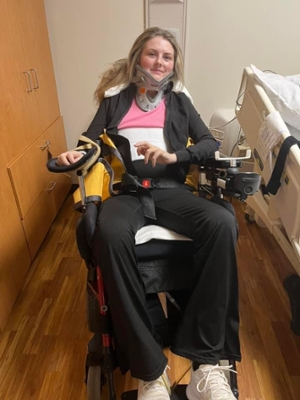
Though her injuries were severe, Hannah's mind was fully intact and her heart just as big as it always had been. She developed special bonds with the medical team, including residents who would visit during early morning rounds.
"Dr. Duran would come in at like 4 o'clock in the morning to do his rounds," Hannah recalls. "He would sit and talk with me, and we would hang out." In these early morning conversations with her care team, Hannah became invested in their lives just as much as they were invested in hers, providing a mutual source of inspiration and encouragement.
“It was amazing to see Hannah’s fighting spirit,” said Dr. Dan Duran. “We know from experience severe spinal cord injuries often see limited recovery, but I had a feeling she would prove us wrong.”
Hannah’s experience at UMMC wasn’t just about expert medical care—it was about the deep connections she formed with her care team. "This is just a really, really, really good place," she says. "I absolutely loved when Dr. Strickland would come by and see me with Nurse Patty. I became friends with everybody."
Dr. Zachary Smalley, neurosurgeon on staff with UMMC neurosurgery specialized in critical care, saw her daily in the ICU. Dr. Smalley admired Hannah’s resilience throughout her recovery, saying, "Hannah was and is tough as nails. If anyone could will themselves to heal, it was her."
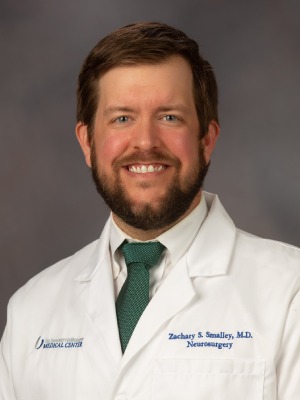
When Hannah regained the ability to move her middle finger, she made sure to use it—"I flipped off Smalley every time he came by," she says with a laugh. "It was the only thing I could do at the time, so it was funny." What could have been an inappropriate gesture in any other setting became an exciting milestone in her recovery.
These moments of humor and connection with her medical team complemented the emotional support she received from her family. Throughout her recovery, Hannah had unwavering support from William, who was completing law school while sleeping beside her in the hospital each night. Their parents helped care for their son, creating a strong family support system that supplemented UMMC's exceptional care.
"When it was time for me to leave, I was so upset because I had become such best friends with my nurses and my doctors," Hannah shares as she recalls the transition to Shepherd Center for rehabilitation. "It was like having to break up with them and move to Atlanta."
Today, Hannah can walk short distances and has regained significant function on her left side, though sensation remains limited. She keeps in touch with many of her UMMC caregivers, who she considers close friends.
"This place will always have a special place in my heart," she says. "I feel like I’m home when I’m here. If something happens, I know I’ll be taken care of."
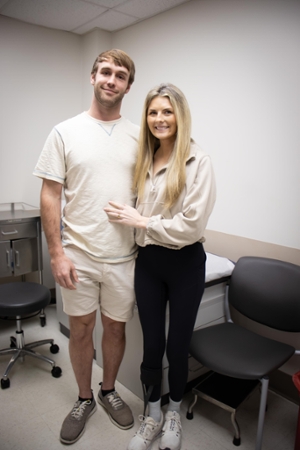
Looking ahead, Hannah remains focused on her rehabilitation—but she’s still making a difference in other people’s lives. At Shepherd Center, she supports newly admitted spinal cord injury patients, offering encouragement when they need it most. “I just check on them and cheer them on,” she says. This volunteer work has become a vital part of her recovery—turning her experience into hope for others.
Hannah’s story is about recovery and redefining what’s possible. From the first flicker of movement in her thumb to walking short distances, she has defied expectations with grit, humor, and unwavering optimism. For her, UMMC isn’t just a hospital—it is a second home filled with people who believe in her. As she continues her journey, she carries the same determination that brought her this far.
"Stay positive," she says. "Even when everything feels negative, find the good in something."


